Once pupils have learnt what the brain is, what it looks like and what it needs, it is time to let them discover that "the entire world is inside your head", as Ben Carson's mum said, and it is only them to decide to derive life, knowledge and abilities with handfuls or not.
- * - * - * - * - * - * - * - * - * - * - * - * - * - * - * - * - * - * - * - * - * - * - * - * - * - * - * - * - * - * - * - * - * - * - * -
Here we would like to present the ideas how we have implemented the growth mindset culture we found interesting in the process of reading literature in the subject, serching websites dedicated to the subject and talking to experts.
The brain is like a sponge
A brain needs chalenge and learning to grow, to be strong, to develop ... as a sponge needs water to be useful at cleaning. Click on the photo to get a sponge lesson plan. (K.I. Primary School in Purda, Poland)
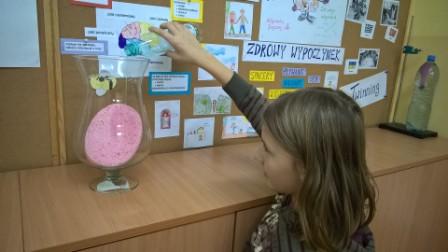
A neural network
A road map, vizualization of walking through an unexplred forest or pupils becoming neurons ... There are plenty of ways to help kids understand what happens in the brain when they learn. Click on the photo to get a neuron lesson plan. (K.I. Primary Schol in Purda, Poland)
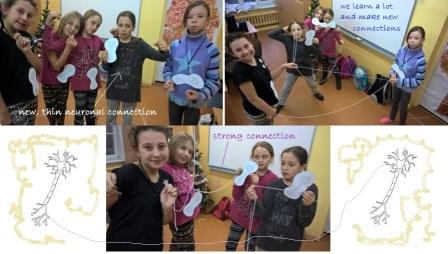
The brain is like a muscle
It means you can exercise your brain like a muscle - the more you use it, the stronger it gets ... You know what to do to get a lesson plan, don't you? (K.I. Primary School in Purda, Poland)
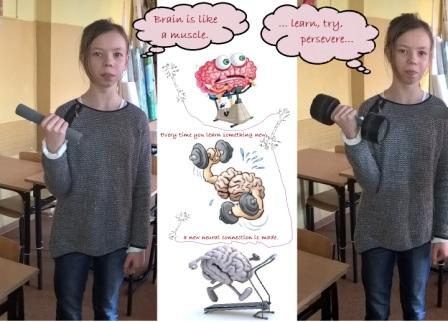
Change your words, change your mindset!
Sometimes we feel like we can't learn something new. Then we can realize that if we stay motivated, practice, and try very hard we can learn to do almost anything! A lesson plan? Click on the _ _ _ _ _ (K.I. Primary School in Purda)
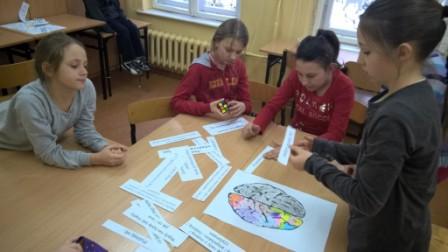
A PowerPoint presentation prepared to explain the difference between fixed and growth mindsets. It's also avaliable in Polish.
a matching game
Pupils cut out same coloured paper cards. Then, they copy half of a growth mindset saying on the one side of the paper card. i.e. 'I can ' and 'make it! '. They place the cards upside down on their desks. In turns, they start to uncover the cards trying to find the pair. The one who finds the more pairs is the winner! (Athanasia Gkitersou, 16th Primary School in Larissa, Greece)
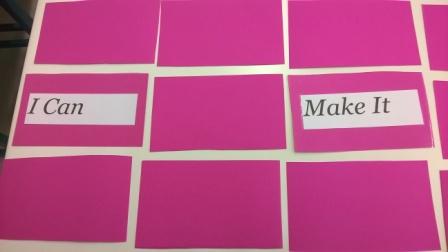
messages all over
Pupils gather growth mindset sayings written on small pieces of paper in a small box. In turns, they choose one of them and he/she copies it on a card. Then, they scatter the cards with the precious messages all over the school, in places where the rest of the school pupils pass by. (A.G. 16th Primary School in Larissa, Greece)
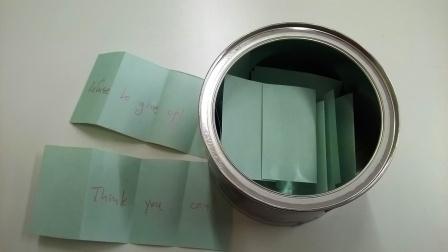
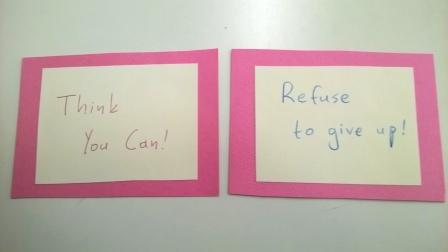
a poem competition
Pupils try to play with the initials of the word BRAIN by writing acrostic poems, as a beginning! They read them aloud in the classroom or they gather them in a booklet! (A.G. 16th Primary School in Larissa, Greece)
An acrostic poem
B for brave
R for ready
A for abilities
I for "I"
N for new
Now, if you mix the above words up, you come up with a decision:
" I feel brave and I'm ready to discover my new abilities.
Yes, I can!"
songs
Let our pupils create, write, sing and play with songs about brain, motivation, abilities etc. Click on the photo to listen to pupils singing "Twinkle, twinkle little brain". (Katerina Velesiotou, 16th Primary School in Larissa, Greece)
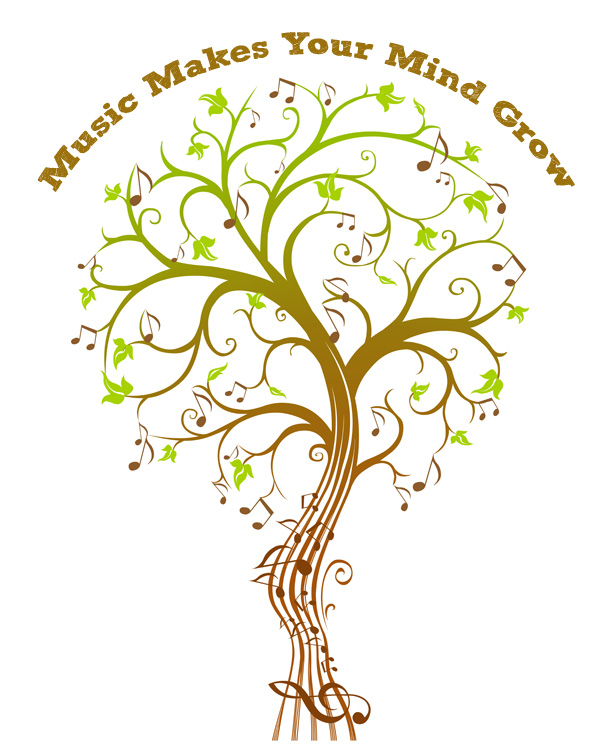
Twinkle, twinkle brain of mine,
How I think you're really fine.
Σα διαμάντι λαμπερό
Είναι μέσα στο μυαλό
The little teapot
a music concentration and memory game
After negotiations we deciced that when we listen to certain sounds of instruments we will do certain movements :
maracas- couples ,
sleigh of bells-knees
pandero- freeze,
tampourine -claps
(Katerina Velesiotou, 16th Primary School in Larissa, Greece)
Simon says game
"helps concetration abilities get stronger" (Olga Melnyk, Kalush Specialized English School No2, Ukraine)
Geometric Shape Puzzle
"This worksop show that kids need a motivation to complete some activity. Some of the student quit at the first attempt. And it was interesting to see that they were students with lower school achievements. Other students that were more persistent have finished the puzzle and after few tries they needed less time to complete it. If the needed 8:36 min at the first try, after the third try they needed 3:37 and were highly motivated to do the activity because of the success." (Jasna Gjorgievska, Goce Delcev Mogila, Macedonia)
To do the puzzle print the pdf